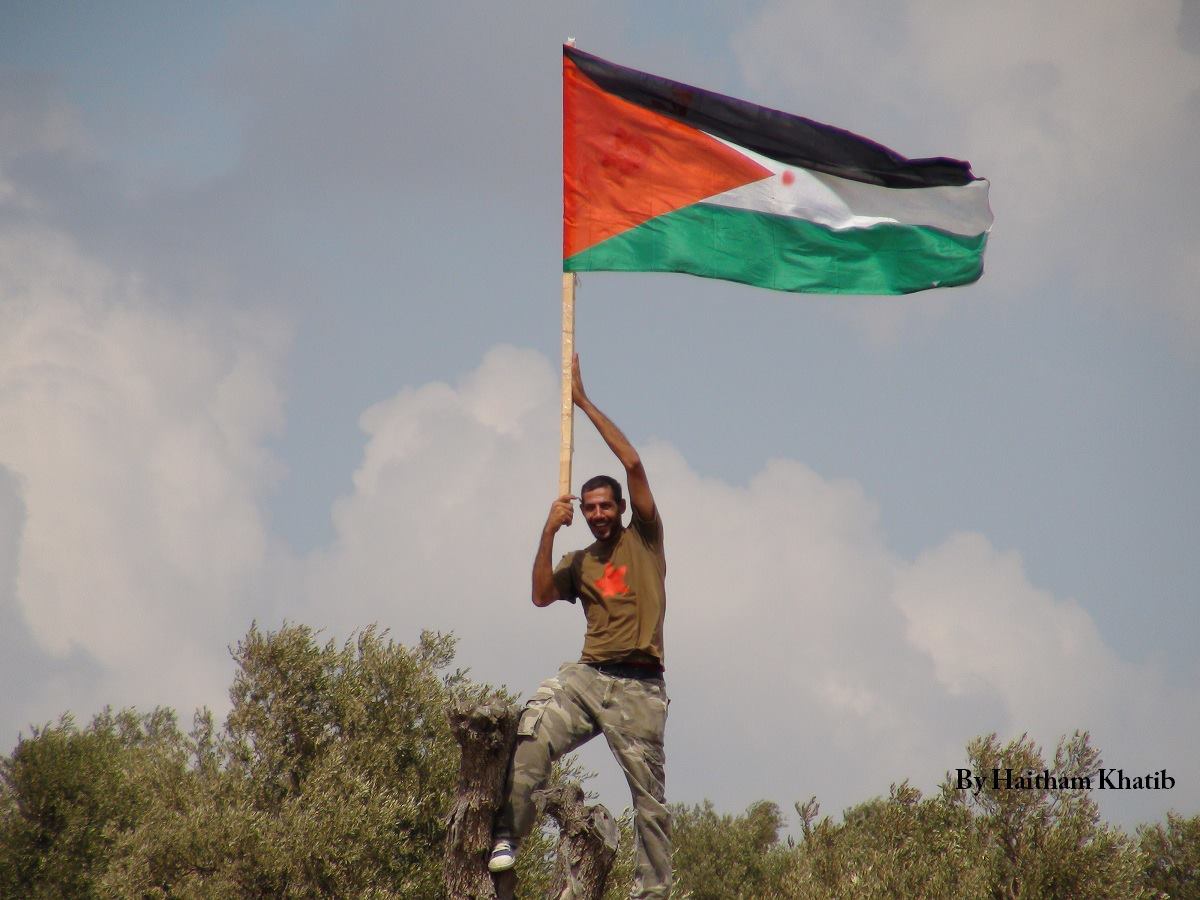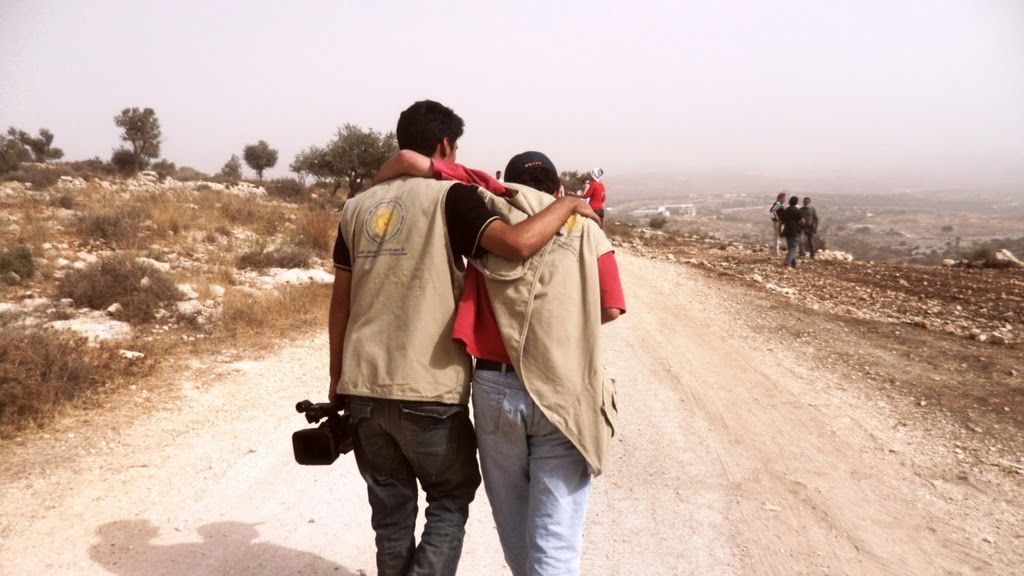Tag: Bil’in
-
Ashraf Abu Rahmah in the midst of circus military court
by Maria Stephanya 28 October 2011 | International Solidarity Movement, West Bank The proof is all there: photos, videos, witnesses. All of them showed that Ashraf Abu Rahmah, one of the main activists of popular non violent struggle in the village of Bil’in, Palestine, walked peacefully on the road which goes from Bil’in’s recent liberated…
-
Ashraf Abu Rahmah was arrested for being himself
23 October 2011 | International Solidarity Movement, West Bank To some soldiers of the Israeli army, staying alone, being quiet, and carrying a flag is a crime. To them, people who act in that way should be arrested. At least we can come to that conclusion when we think about the arrest of Ashraf Abu…
-
Ashraf Abu Rahmah, brother of two Bil’in casualties, arrested during protest
22 October 2011 | Popular Struggle Coordination Committee Ashraf Abu Rahma, brother of Bassem and Jawaher Abu Rahma who were killed by the Israeli army in Bil’in is falsely accused of stone-throwing and was sent to Ofer Prison. Ashraf himself was shot in the leg by the army while cuffed and blindfolded in a scandalous incident in 2008. The…


